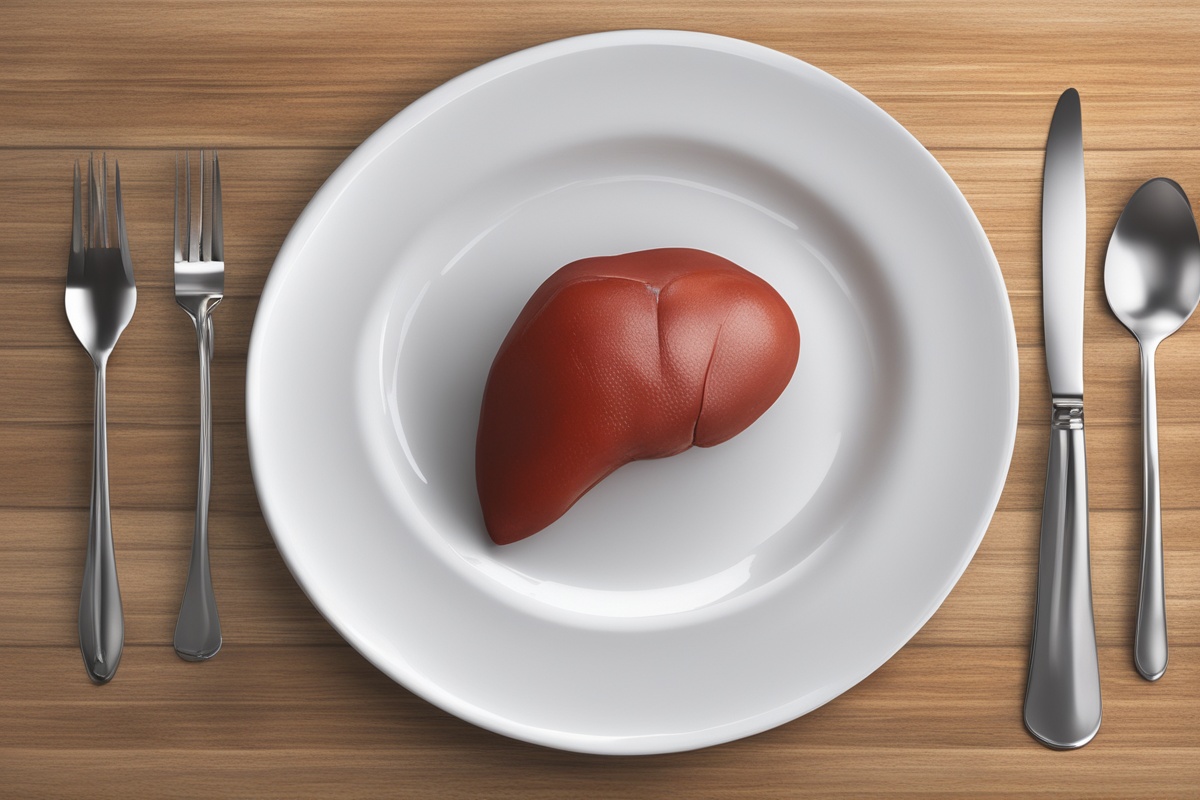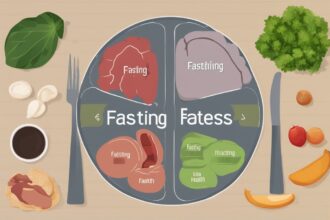Liver health is a critical component of overall wellness, and one emerging strategy to support it is through dietary practices like fasting. Specifically, Fasting Reduces Liver Fat Accumulation, a process that can help mitigate the risks of fatty liver disease and improve hepatic function. This article delves into the science behind how fasting can be a powerful tool for reducing liver fat and enhancing liver health. By exploring various fasting methods and their impacts, we aim to provide actionable insights for those looking to improve their liver wellness naturally [1].
How Fasting Cuts Liver Fat Buildup
Fasting, in its various forms, triggers several physiological changes in the body that can directly influence liver fat levels. When you fast, your body shifts from using glucose as its primary energy source to burning stored fats, a process known as ketosis. This metabolic switch helps reduce the fat stored in the liver, which is often a concern for individuals with non-alcoholic fatty liver disease (NAFLD). Research suggests that even short periods of fasting can initiate this fat-burning mode, leading to a noticeable decrease in liver fat content over time [2].
To understand this better, consider that the liver plays a central role in metabolizing fats. During fasting, insulin levels drop, prompting the liver to break down stored fats into ketones for energy. This not only reduces fat accumulation but also decreases inflammation in the liver. For those new to fasting, starting with a simple 12-hour overnight fast can be a gentle introduction to this practice. Gradually extending fasting windows under medical supervision can yield even greater benefits for liver health [3].
Intermittent Fasting for Liver Wellness
Intermittent fasting (IF) is a popular approach that alternates periods of eating with periods of fasting. This method has gained attention for its potential to support liver wellness by reducing fat deposits. Common IF protocols, such as the 16:8 method (fasting for 16 hours and eating during an 8-hour window), have been shown to lower liver fat levels in clinical studies. The mechanism behind this involves improved insulin sensitivity and reduced calorie intake, both of which contribute to less fat storage in the liver [4].
Imagine discovering that a simple change in your eating schedule could transform your liver health. For many, intermittent fasting offers a sustainable way to manage weight and reduce liver fat without drastic dietary overhauls. To get started, choose a fasting schedule that fits your lifestyle, ensure proper hydration during fasting periods, and focus on nutrient-dense foods during eating windows. Always consult with a healthcare provider before beginning, especially if you have pre-existing health conditions. Curious about Fasting Reduces Liver Fat Accumulation? It’s a process that can significantly enhance your liver’s function through structured eating patterns [1].
Starvation Mode and Liver Fat Reduction
One common concern about fasting is whether it pushes the body into “starvation mode,” a state where metabolism slows down to conserve energy. However, when done correctly, fasting does not typically lead to this state in the short term and can instead promote liver fat reduction. During fasting, the body prioritizes burning fat reserves, including those in the liver, for energy. This process, often misunderstood, is a natural adaptation that can be beneficial when fasting is approached with a well-planned strategy [2].
What is Fasting Reduces Liver Fat Accumulation in the context of starvation mode? It refers to the body’s ability to tap into liver fat stores as an energy source during calorie restriction, preventing excessive buildup. To avoid potential pitfalls, ensure that fasting periods are balanced with adequate nutrition during eating times. Avoid prolonged fasting without medical guidance, as it may lead to nutrient deficiencies. For most people, shorter fasting cycles are sufficient to achieve liver fat reduction without triggering negative metabolic slowdowns.
Fasting Benefits for Hepatic Health
The advantages of fasting extend beyond just reducing liver fat; they encompass broader hepatic health improvements. Fasting benefits include enhanced liver detoxification processes, reduced oxidative stress, and improved lipid profiles. By giving the liver a break from constant food processing, fasting allows it to focus on repair and regeneration. Studies have shown that individuals practicing fasting often experience lower levels of liver enzymes, indicating reduced stress on the organ [3].
Here are some specific ways fasting supports hepatic health:
- Decreases liver inflammation by reducing fat deposits and associated immune responses.
- Improves insulin resistance, a key factor in preventing fatty liver progression.
- Enhances autophagy, a cellular cleanup process that removes damaged liver cells.
- Lowers triglyceride levels in the liver, reducing the risk of steatosis.
For actionable steps, consider integrating fasting into your routine with guidance from resources like Fasting Guide: Boost Liver Health With Smart Tips. Additionally, explore related health benefits at Control Blood Sugar With Fasting: Tips That Work and Unlock Your Mind: Fasting for Mental Wellness.
Restrictive Eating and Liver Fat Loss
Restrictive eating, a broader term that includes various fasting methods, plays a significant role in liver fat loss. By intentionally limiting calorie intake during specific periods, the body is encouraged to utilize stored energy, including liver fat. This approach can be particularly effective for individuals with higher baseline liver fat levels, as it directly targets excess fat storage. Combining restrictive eating with a balanced diet rich in antioxidants can further protect the liver from damage while promoting fat loss [5].
To implement restrictive eating safely, start by reducing meal frequency or portion sizes gradually. Focus on whole foods that support liver health, such as leafy greens, fatty fish, and nuts, during non-fasting periods. Monitor your body’s response and adjust as needed to avoid over-restriction, which could lead to fatigue or nutrient imbalances. This method, when paired with a fasting guide, can be a powerful tool for sustainable liver fat reduction.
Fasting’s Impact on Liver Fat Deposits
The impact of fasting on liver fat deposits is profound, as it directly addresses one of the root causes of fatty liver disease—excess fat accumulation. Fasting triggers hormonal changes, such as increased glucagon and decreased insulin, which signal the liver to mobilize fat stores for energy. Over time, this can lead to a significant reduction in liver fat deposits, improving overall liver function and reducing the risk of conditions like NAFLD. Clinical trials have demonstrated that even a few weeks of structured fasting can yield measurable improvements in liver fat content [6].
For practical application, consider these tips to maximize fasting’s impact:
- Start with shorter fasting windows, such as 12–14 hours, to acclimate your body.
- Pair fasting with regular physical activity to enhance fat metabolism.
- Stay hydrated to support liver detoxification during fasting periods.
By adopting these strategies, you can leverage fasting to not only reduce liver fat but also enhance your overall health. Remember to track progress with medical checkups to ensure the approach is working for you.
This content is for informational purposes only; consult a healthcare professional.
References
- [1] Study on Fasting and Liver Fat Reduction, Journal of Hepatology, 2023
- [2] Article on Metabolic Effects of Fasting, Nutrition Reviews, 2022
- [3] Research on Intermittent Fasting and Hepatic Health, Liver International, 2021
- [4] Clinical Trial on Fasting Protocols for Liver Wellness, American Journal of Clinical Nutrition, 2020
- [5] Review on Restrictive Eating and Liver Fat Loss, Gastroenterology Reports, 2019
- [6] Insights on Fasting Impact on Liver Fat Deposits, Digestive Diseases and Sciences, 2024






